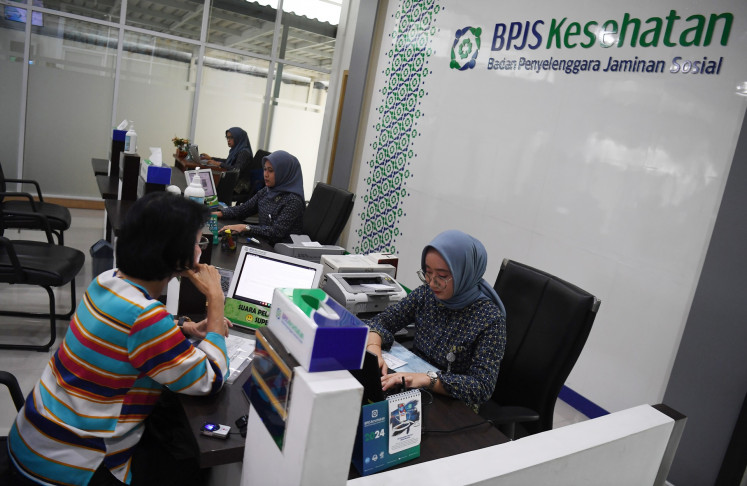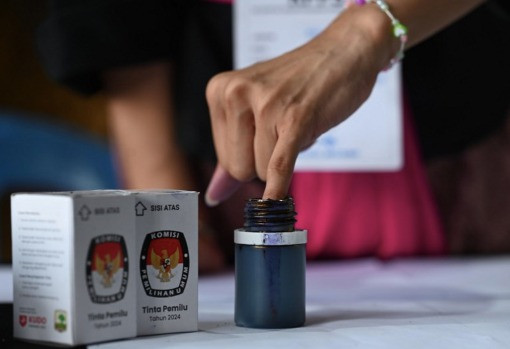Protecting children from rotavirus disease
In the 1970s when I started working in the pediatric ward of Gadjah Mada University’s hospital in Yogyakarta, I witnessed one of three children with diarrhea die due to dehydration and other related complications
Change Size

I
n the 1970s when I started working in the pediatric ward of Gadjah Mada University’s hospital in Yogyakarta, I witnessed one of three children with diarrhea die due to dehydration and other related complications. I was so frustrated since we did not know what caused the disease — I felt like I was treating them blindly.
One day, I heard about a breakthrough from Dr. John Rohde, a pediatrician from the Rockefeller Foundation, who said that Dr. Ruth Bishop from Australia had discovered a new virus causing severe diarrheal disease called rotavirus. This pathogen was then proved as the most prevalent cause of diarrhea disease globally, which took the lives of one in 10 infants aged under 5-years-old each year and sickened many more.
Four decades later, rotavirus remains the leading cause of moderate to severe diarrhea in children under 5 and is responsible for over 200,000 deaths annually. Most children with rotavirus diarrhea vomit and dehydrate so severely, hindering oral rehydration therapy, which they need.
By the age of 5, a child will experience at least one episode of rotavirus diarrhea, one in five cases will require outpatient visits, one in 65 will require hospitalization and approximately one in 300 will die.
Classic preventive measures are inadequate to provide protection to children from rotavirus diarrhea. Exclusive breastfeeding, good sanitation and hygiene are vital for protecting children in general, but they are not enough to reduce the spread of rotavirus, as evidence shows that rotavirus diarrhea is prevalent in developed countries where hygiene and sanitation are better than that in developing nations.
Crucially, children need vaccinations to prevent rotavirus diarrhea and death as a result of this deadly virus.
There are two vaccines commercially available in Indonesia today: RotaTeq and Rotarix, licensed and WHO prequalified for global use in 2008 and 2009 respectively. Yet because the rotavirus vaccine has not yet been introduced into the Indonesian National Immunization Program (NIP), distribution of the vaccine is limited to big cities and private health care centers and clinics.
Furthermore, acceptance of this vaccine is still low due to the high cost and low priority given by public health authorities. Of the many children who need this vaccine, most cannot afford it. Routine use of the rotavirus vaccine for all children through our NIP could be potentially cost-saving in Indonesia. A study by Wilopo, et. al. in 2011 assumes that at a cost of US$14 per vaccine course, routine vaccinations would be highly cost-effective.
Through indirect protection, also known as “herd immunity”, rotavirus vaccines also protect people who can’t be vaccinated because they are too young to receive the vaccine or have a weakened immune system.
A new rotavirus vaccine is being developed in Indonesia by state-owned pharmaceutical company Biofarma in collaboration with Gadjah Mada University and Australia’s Murdoch Children Research Institute.
We do hope this vaccine, once found effective through clinical trials, will be included in our National Immunization Program. Since the vaccine is still under trial, it won’t be available for several years.
Therefore, introducing the currently available rotavirus vaccines in the meantime will prevent many deaths and many more hospitalizations due to rotavirus.
For these reasons, and for the sake of equality — with so many of our children without access to the vaccine today — I hope that within two or three years rotavirus vaccines will be added to the NIP to protect all children from this devastating disease.
____________________________
The writer is a professor of pediatrics, a consultant for gastroenterology with Universitas Gadjah Mada and a member of the Indonesian Technical Advisory Group on Immunization. She received the Pediatric Award from the Asian Pacific Pediatric Association in 2009 and doctor of medical science honoris causa from the
University of Melbourne in 2015.









